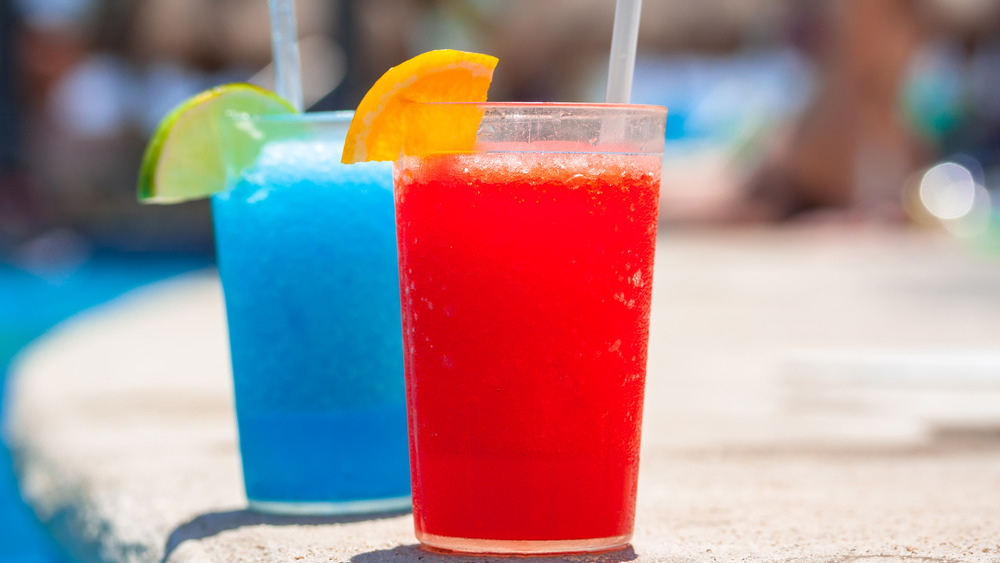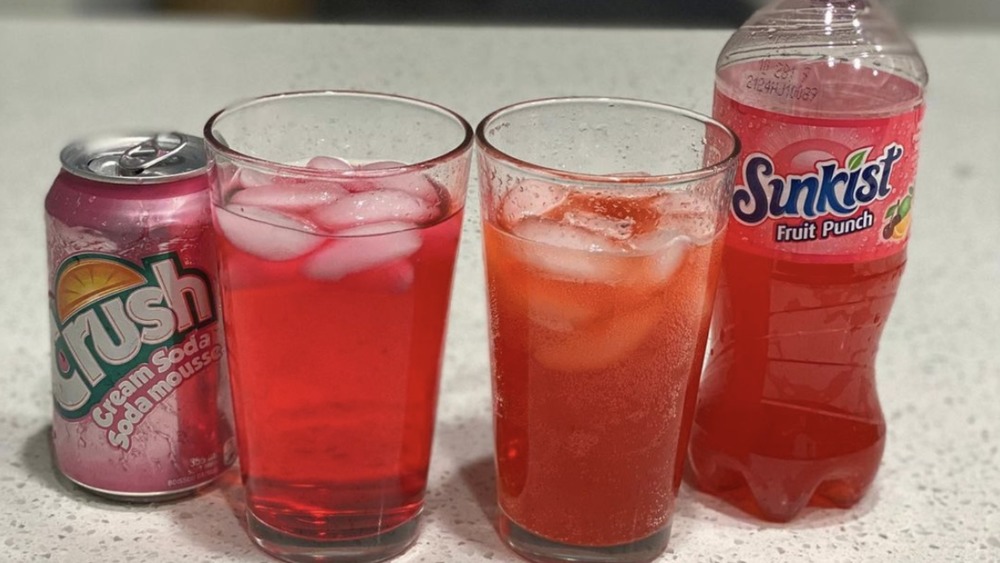The Surprising Truth About Fruit Punch
For many of us, there are few drinks as nostalgic as fruit punch. It ranks right up there with chocolate milk and Tang, bringing back fond memories of childhood when your biggest concern was how long you'd get to play on the playground after school. It's the drink that you'd find in a carton in your lunch box or served in tiny plastic cups at snack time in elementary school. Whether it was Hawaiian Punch, Capri Sun, or some knock-off brand, you loved the refreshing sugary sweet drink, filled with flavors like pineapple, apple, and apricot.
But while fruit punch is something you'd likely dub a kids' drink, it wasn't always that way. In fact, according to the lesser-known history of the bright red beverage, fruit punch was actually originally very much meant for adults back in the 1600s, per History. Here's what you probably didn't know about how fruit punch was invented.
Punch was originally made as an alternative to beer
You might be surprised to find out that fruit punch was first invented in the 17th century as an alternative to beer for sailors and shipmen. The problem with beer — which sailors were notoriously fond of — was that after being on the ship for weeks or when it was exposed to warmer climates, it would go flat or worse, spoil. As a solution, shipmen started brewing up their own beverages made of local ingredients from their tropical destinations, like rum, citrus fruits, and other spices. Thus, punch was born. The first recorded punch recipe hails from 1638, when Johan Albert de Mandelslo, a German factory manager in India, wrote of a drink that included citrus and sugar, per Difford's Guide.
While it started as an alcoholic drink for sailors, the fruit punch as we know it (i.e. both the kind that's served in big bowls at parties and the non-alcoholic kind) evolved once the sailors brought it back to England. During the Victorian era, the Queen wasn't a fan of alcohol so non-alcoholic fruit punch rose in popularity. By then it had made its way to America and the rest was, well, history.

